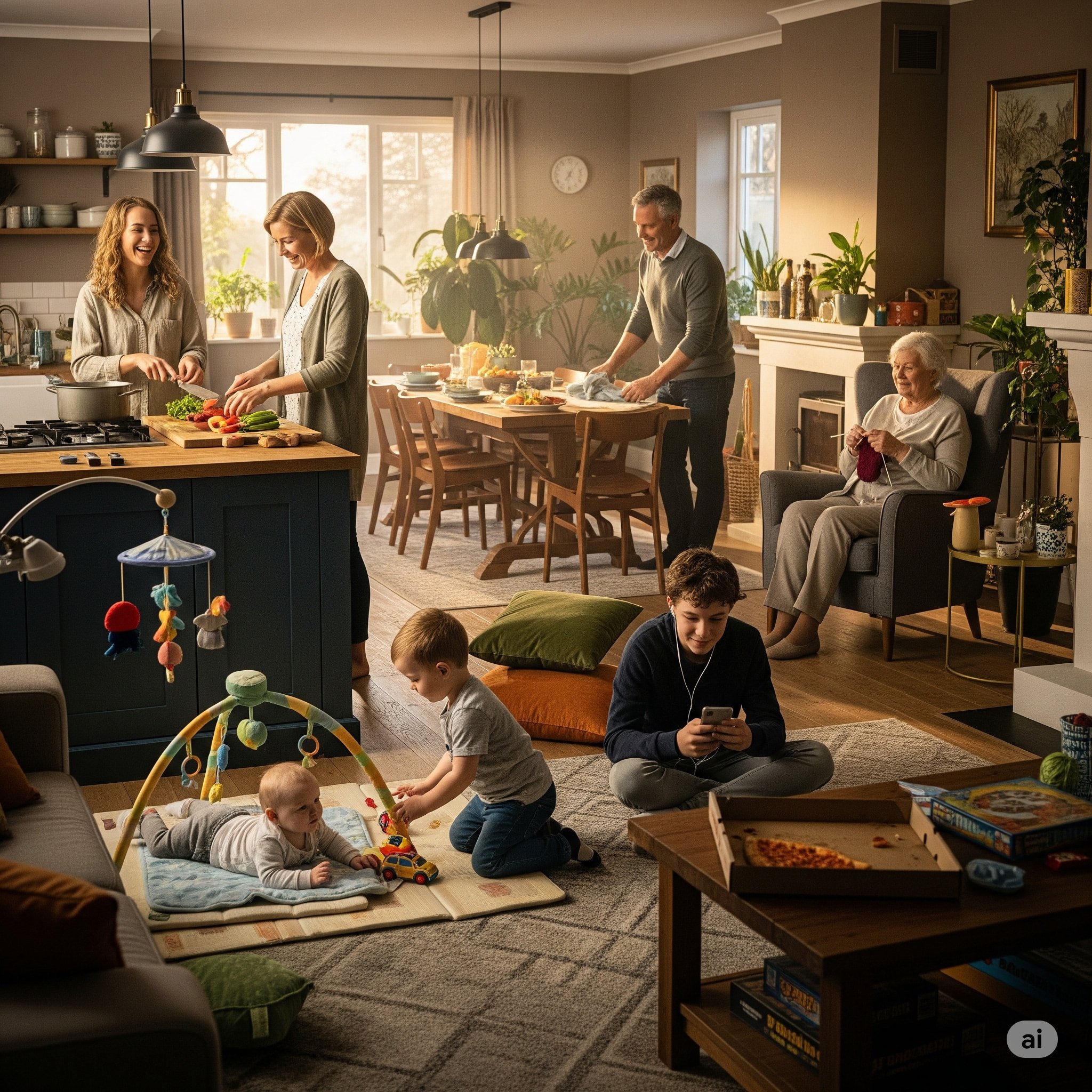Parents often feel immense pressure to handle everything themselves, but easing the burden of parenting stress might mean letting go of self-reliance and embracing shared care. Many parents feel ashamed for being overwhelmed, yet this feeling is far from unique.
Social scientists call this widespread issue parenting stress, defined as the negative psychological reaction when the demands of raising children outweigh available resources. This type of stress has become more common over the last 50 years. After the COVID-19 pandemic, almost half of U.S. parents reported feeling completely overwhelmed most days. High levels of parenting stress can negatively impact parents' mental health and even reduce closeness with their children.
One reason for today's high stress levels is that humans were never meant to raise children in isolation, yet modern society often pushes us into it.
The myth of family self-reliance
Historically, people lived in larger, multi-generational family units. Our ancestors, like hunter-gatherers, relied on their clan for help with family needs, including child-rearing. Research across different cultures and time periods suggests that parents are psychologically wired to raise children within a community, not just within isolated nuclear families.
Anthropologists use the term alloparents (from the Greek "allo," meaning "other") to describe adults who help parents care for children. Studies indicate that alloparenting contributes to children's well-being and even their survival in populations with high child mortality rates. A 2021 study of a foraging community in the Philippines found that alloparents provided a significant three-quarters of infant care and an even larger proportion of care for children aged 2 to 6.
In contrast, the idea of the nuclear family is quite new, emerging with industrialization and peaking in the mid-20th century. Even though family structures have changed dramatically since then (for example, with more single-parent households), the ideal of the self-reliant nuclear family still persists. However, support from others is crucial for family resilience. The old saying, "It takes a village to raise a child," is strongly supported by research on social support among parents, especially those with children who have special needs.
Parenting with collective care
Social scientists identify at least three kinds of support:
- Tangible: Material or financial help.
- Emotional: Expressions of care, empathy, and love.
- Informational: Providing information, advice, or guidance.
Parenting stress isn't something individuals can solve on their own. However, there are ways to start moving toward more collective care in your daily life:
Expand your support network: Look at your current network not just by how many people are in it, but by the types of support they offer. Identify any gaps and think about ways to complete your "village."
Offer help to others: While it might seem counterintuitive, people who provide support to others often experience greater well-being and even live longer. Helping others also creates a cycle of reciprocity, making them more likely to help you in return.
Normalize asking for and accepting help: For many, asking for support is difficult. It means being vulnerable and letting others see your struggles. Yet, people are often more willing to help than you might think. Also, allowing others to help you gives them permission to ask for help themselves later on.
Review your caregiving expectations: How others care for your children might not be exactly how you do it. Think about what practices are absolutely essential for your family and what you might be able to relax on.
None of these suggestions are easy. They require time, vulnerability, and courage. In a society that values individualism and nuclear family self-reliance, approaching parenting through a lens of collective care can feel countercultural. But perhaps it's a return to how humans have raised children for thousands of years.

Picture: Sharing the load (Gemini)



